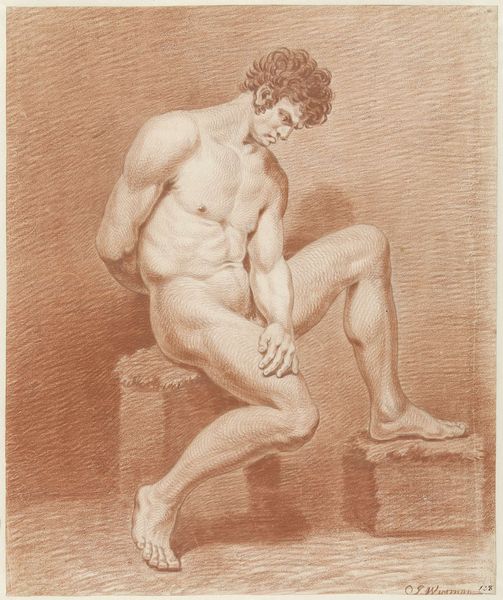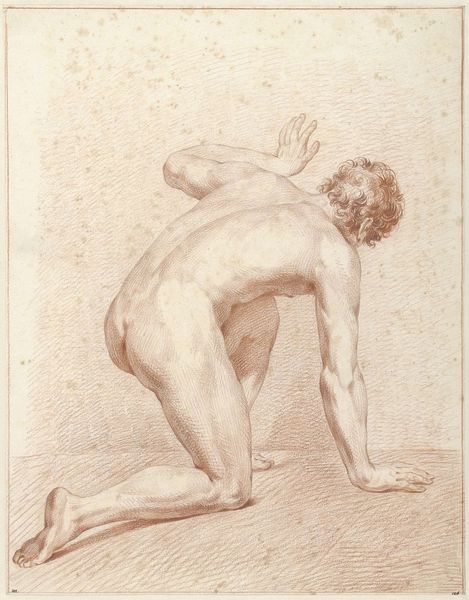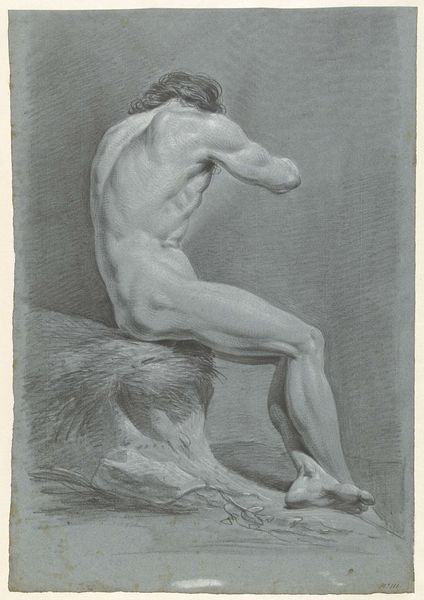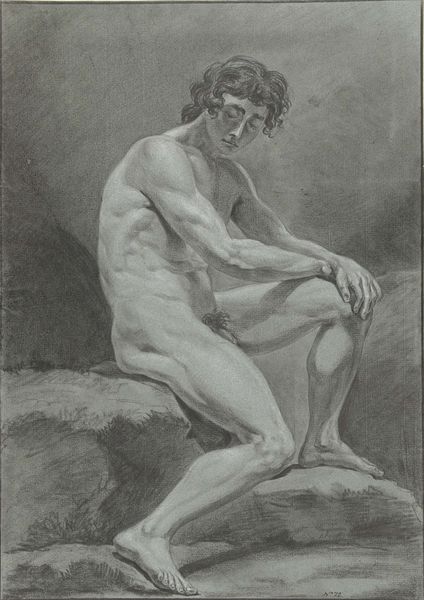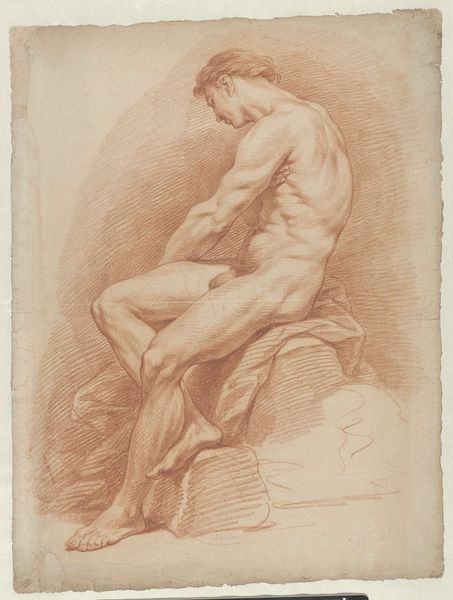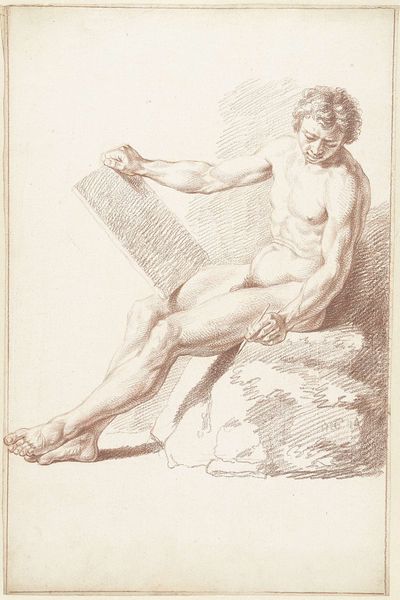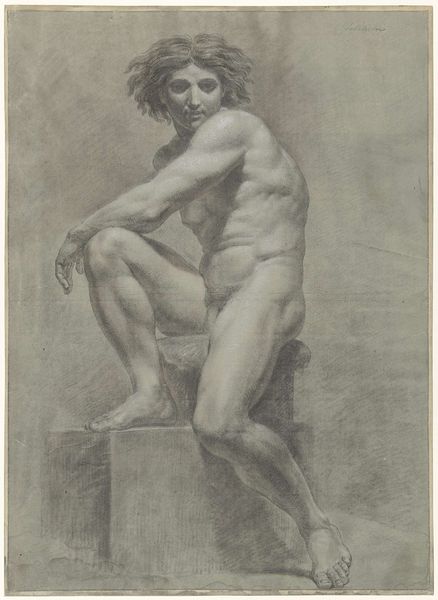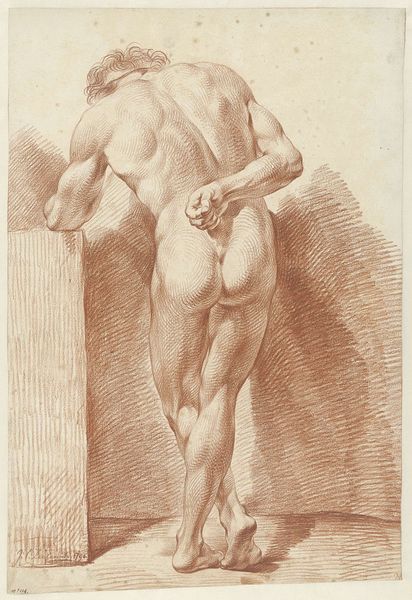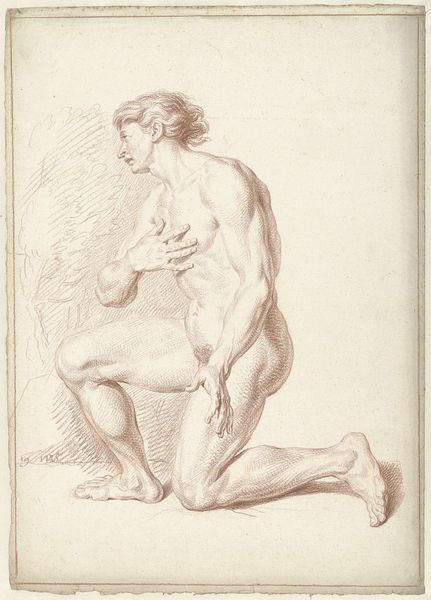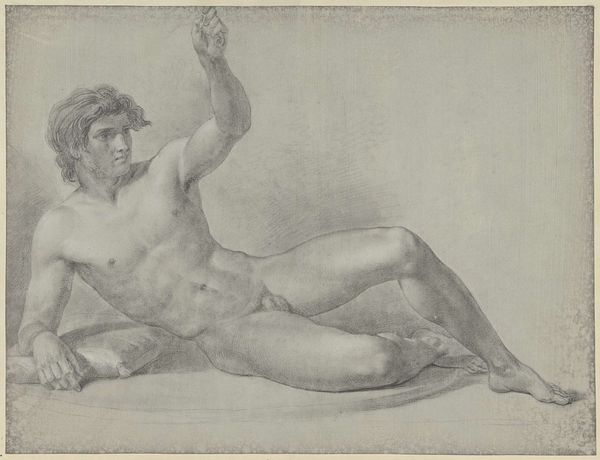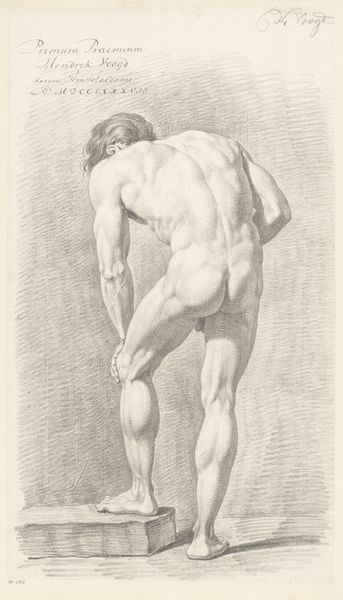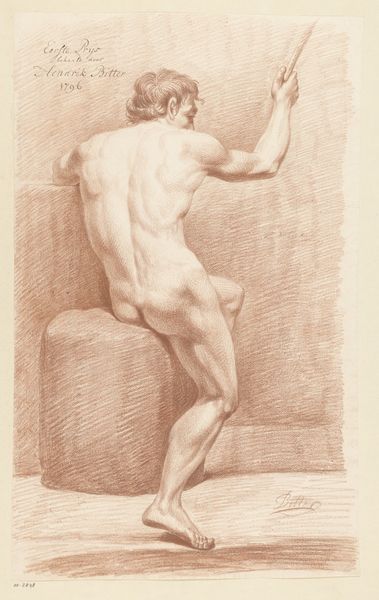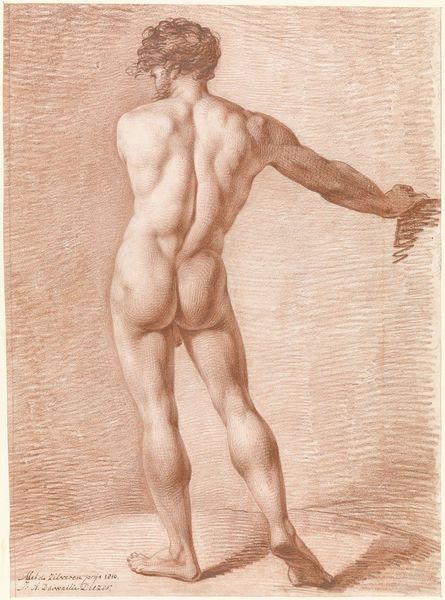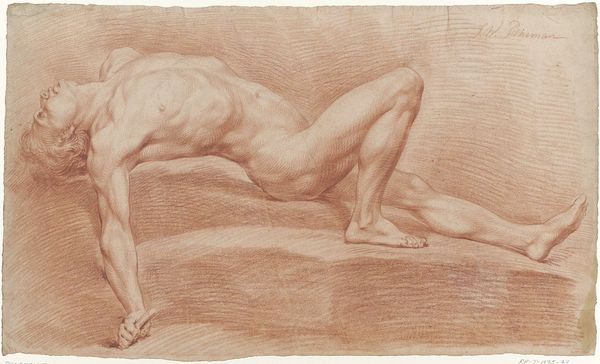
drawing, dry-media, charcoal
#
drawing
#
neoclacissism
#
charcoal drawing
#
figuration
#
form
#
dry-media
#
line
#
charcoal
#
academic-art
#
nude
Dimensions: height 503 mm, width 345 mm
Copyright: Rijks Museum: Open Domain
Jacob de Vos created this sanguine drawing of a nude man. The figure's seated pose, with his back turned, immediately draws attention. It is an echo of classical antiquity, where the male nude was a symbol of ideal beauty and strength. Consider the "melancholic" pose, similar to those found in antiquity, but also later in romantic art. The man’s turned back becomes a symbol of introspection. In ancient sculptures of mourning figures, this pose conveyed grief or contemplation. The motif of the turned back is found again and again. Think of Caspar David Friedrich's "Wanderer above the Sea of Fog," where the figure's pose invites viewers to project their own feelings into the scene. De Vos’ figure evokes both classical ideals and romantic introspection. We see here how an emotional or psychological aspect of the image engages viewers on a deep, subconscious level. The non-linear, cyclical progression of the symbol, with its resurfacing, evolution, and new meanings in different historical contexts is clear.
Comments
No comments
Be the first to comment and join the conversation on the ultimate creative platform.
